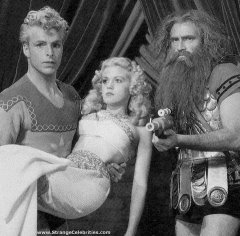
Charles Kennedy’s recent semi-admission that he is an alcoholic was unfortunate. I think, as politicians go, he is entertaining and likeable and comes over as sincere in his policies and ideas. Which he always can, given that he would, even clean and sober, never really wield any power.
But now the LibDems are in the process of choosing a new leader. It is really important that they choose the right person. I am not a Liberal Democrat voter, and actually know little about the candidates. But this isn’t really relevant. What is relevant is that Liberal Democrats are crucially important to British politics, and must remain so.
Imagine if, in the United States, there was a historically credible, organised and high profile third party that held somewhere between a sixth and a quarter of the electoral numbers. American politics would be a completely different beast. In fact it would be MUCH better.
There are plenty of reasons why British politics works quite well. There are also plenty of reasons why it doesn’t, but I don’t want to focus on that just now.
One of the main reasons that it works quite well, is that, like it or not, the checks and balances system that exists in the parliamentary process succeeds way more than it fails. The local constituency system allows a broad mix of party apparatchiks and independent thinkers to stand under similar banners. For example, the Labour Party has Frank Field (economic liberal reformer) and Dennis Skinner (old fashioned socialist firebrand). Sometimes the system allows true Independents and mavericks to get elected. George Galloway is an MP, as was former war correspondant Martin Bell.
The House of Lords frustrates many people, me included. Why should hereditary titles entitle people to be part of the governmental process we cry? Those interests ultimately only protect themselves and their power. But the Lords also does genuinely contain groupings of wise and experienced politicians who act, often crucially, as a brake on whichever government is in power. In our cosy world we tend to forget that Radicalism can come from both left and right. I would rather have a chamber who put the brakes on the occasional left wing reform proposal than a system without brakes that allows extreme right wing proposals to sail through unopposed.
But I think the Liberal Democrats are just as, if not more, important that the system itself.
They act as a moderator of political extremes and a cushion against the way that fashionable ideologies can so easily grip a party institution to the detriment of common sense. Each time one of the major parties is weak in opposition, it is the Liberal Democrats who provide a safety net of calling the government on policy and providing a voting alternative. You can use them to register a protest vote without actually putting them in power and you can vote for them if you agree with what they are saying. They are a party for all eventualities.
All that really matters about Liberal policy is that it is, by nature, unextreme and based in ideas rather than some hermetically sealed ideology. Rigid ideology is always dangerous and often disastrous, because it is never far from becoming cultish and dogmatic. The vast majority of people want things to get better, but are profoundly uncomfortable at the speed of change. People like improvement to happen in increments, so they can digest, deal with and judge it before moving onto the next change.
Each time one of the major parties threatens to be engulfed by ideology it does one of two things to the other major party. Either it pushes the other party further to the opposite wing, or it drags the opposite party closer to the centre. Thankfully, the Liberals tend to stop the first from happening by acting as a mediator and buffer. The genuine electoral threat provided by a party that historically takes between 15 and 20 percent of the vote mean that all parties are reluctant to stray too far from the centre ground, for fear of their centre-ground support defecting come election time.The parties tend to remain equidistant on the political spectrum and tiptoe towards left, right or centre as group. The only time in recent history that this failed to happen is when the Liberals went chasing power and cosied up to left-wing Labour government of Jim Callaghan in the late 1970’s. They lost their way and eventually split. People often forget that when Thatcher was torching Argentine ships, clubbing coal miners and planning to put copies of ‘Free to Choose’ in every hotel bedroom, she could get away with it because Labour wasn’t the only opposition party that was weak and in disarray.
It is important that Liberal party remains true to both its ideas and function as it moves to elect a new leader. It would be a disaster if it chooses a leader who is nakedly focussed on power, and forgets that the real nature of the party lies in its ability to influence.
No comments:
Post a Comment